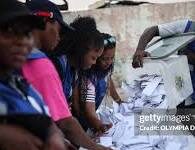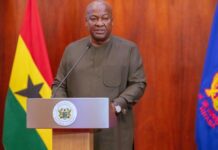Cameroon’s incumbent president Paul Biya is on the ballot sheet for the October 7, 2018 presidential polls. The octogenarian is vying for a new term after serving for decades as president of the central African country.
The one-time Prime Minister turned president ruled for a number of years in what was effectively a one-party state until the nineties when multi-party rule was introduced. In the one-party era, the Cameroonian National Union was the sole political entity.
The government of Biya introduced political reforms which eventually led to the introduction of multi-party politics in the early 1990s.
The government then adopted a legislation authorizing the formation of multiple political parties. Cameroon’s first multi-party legislative and presidential elections were held in 1992 followed by municipal elections in 1996 and another round of legislative and presidential elections in 1997.
Cameroon has in the multi-party era witnessed four multi-party elections, 1992, 1997, 2004 and 2011, the upcoming polls is the fifth. As part of our Africa Elections coverage of the vote, we look back at Biya’s winning record – which according to political watchers is most likely to continue.
1992 elections – Biya’s stiffest electoral challenge till date
Paul Biya – 40% (1,185,466 votes) John Fru Ndi – 36% (1,066,602) The other parties shared the remaining 24%. The number of registered voters that year amounted to 4,195,687.
1997 elections – main opposition boycott spurs Biya landslide
The Social Democratic Front, Biya’s main opponents as well as other opposition parties such as the National Union for Democracy and Progress, and the Cameroon Democratic Union boycotted the Presidential elections, leaving Biya with an overwhelming victory. The voter’s turnout that year stood at 83.1% with total voter registration of 4,220,136.
Biya – 92% (3,167,820) Henri Hogbe Nlend – 2.5% (85,693) Others – 5.5%
2004 elections – opposition decry rigged process
Opposition candidates criticised the election as having seen significant amounts of multiple voting and that security forces had harassed opposition agents at polling stations.
They described the election as having been rigged and appealed to the Supreme Court to annul the results. On 25 October 2004 the Supreme Court confirmed the results and rejected the complaints from the opposition.
Biya – 70% (2,665,359 votes) John Fru Ndi – 17.4% (654,066) Others – 12.6%
2011 elections – record number of aspirants as Biya raced clear
Elections in 2011 witnessed an explosion in the number of candidates who vied for the presidency. More than 50 candidates submitted their files and 23 of them were retained by the elections governing body. The number of registered voters also went up to 7,251,651.
Biya – 77.99% (3,772,527) John Fru Ndi Ni – 10.71 (518,175) Others – 11.3 %










